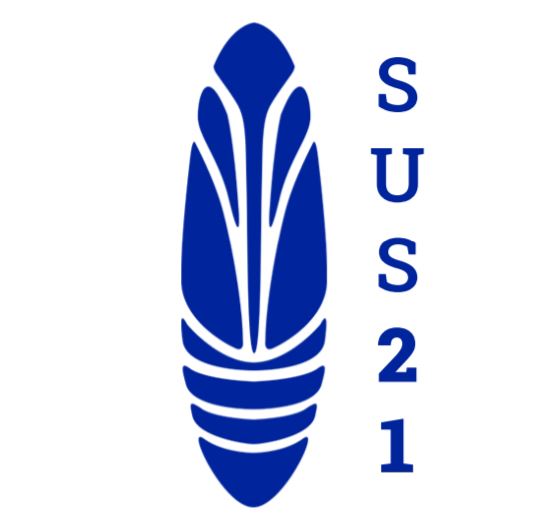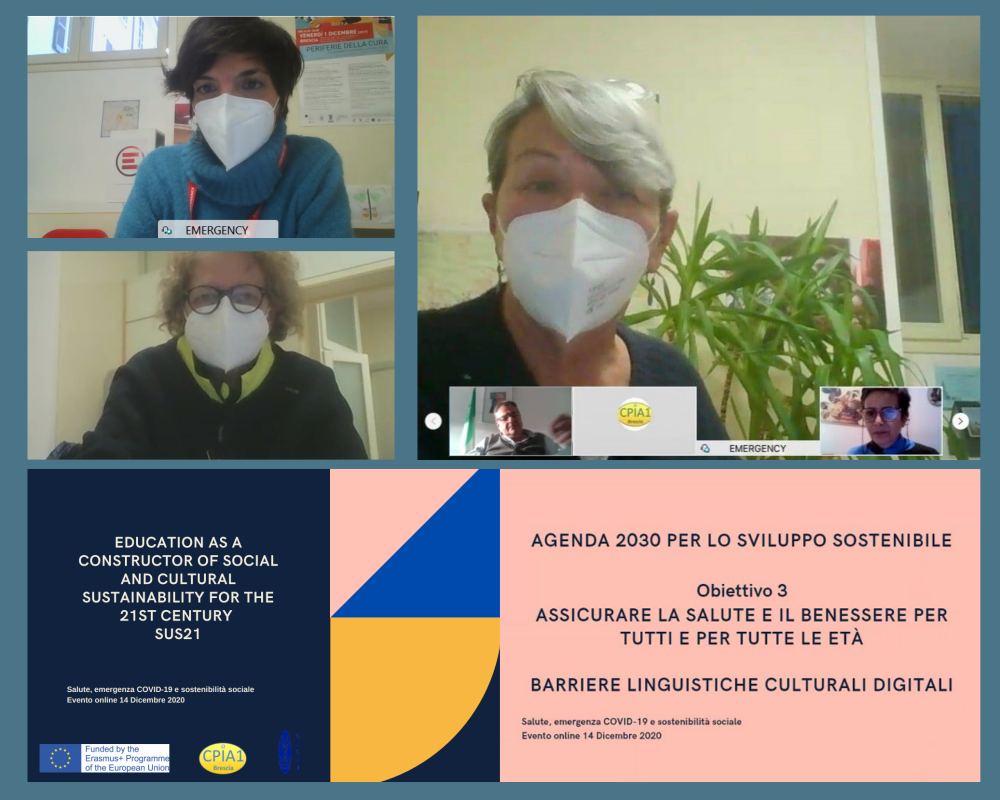By by Antonietta Lasalvia
On December the 14th CPIA 1 Brescia, along with some members of the health sanitary system in Brescia and of Emergency, organised and held an online meeting whose title was: Health, emergency COVID-19 and social sustainability.
The meeting was attended by teachers and students of the CPIA and had as guests Dr. Donatella Albini, a gynaecologist with a special mandate for health for the Brescia Townhall, Nurse G. Nadia Benetti of the medical clinic for migrants of the Civic Hospital of Brescia and Silvia Koch as a contact person of Emergency in Brescia.
The questions asked to these contact persons were: Is COVID-19 a risk factor the social care integration of the migrants? How can school promote the health protection of the weakest parts of the population?
Dr. Albini took the floor to point out the situation of the adolescents and the minors in general. They experienced ad are still experiencing the worst part of the emergency which is itself very bad.They spent the 3/4 of the 2020 in complete solitude, without any instrument to connect with to have lessons at school which regularly went on, no doctors to cure them or their parents and relatives in case of contagion, no people to speak with in order to express their problems or anxiety.
The Italian Government closed all boundaries and houses and didn’t think to the situation of discomfort that created in many families for whom the access to school granted education and contact with people who surely were able to understand them. Migrants, instead, have many barriers to go through: linguistic, cultural and digital ones, and emergency COVID-19 increased the number and the complexity of the information to be understood. Moreover they were compelled to finish completing their requests to the sanitary service online with all the procedures explained with the micro-language of medicine. So they couldn’t have any access to any sanitary cure or to any programme of prevention.
According to Koch the simplification to the access to the cures on the territory failed and the barriers that were important before are bigger today. COVID-19 has surely penalised the people who were in serious difficulties before the pandemic and has also increased the gap between the poor and the rich ones in order to make the poor poorer.
The virus came from so far and it was very quiet that nobody could be prepared to struggle it, this was, for doctors a bad sign of globalisation. In this case globalisation meant to hit only few people and disadvantage them. According to the prestigious medical magazine „Lancet” this was not a pandemic but a syndemic, an undemocratic illness that strikes the poor, the weak and the frailest ones.
According to OCSE, women are the most disadvantaged people hit by this phenomenon because the experts estimate an increasing number of forced marriages, an increasing number of pregnancies in little girl brides and an almost complete abandon of school for these 2 last categories. School that was an important part of the process of growth for this people is completely disappeared. Poor families are not able to purchase books for their children or to pay them the school canteens anymore.
Silvia Koch, who takes care of the asylum seekers and irregular migrant to grant them basic sanitary assistance, tested the conditions of these people whose access to the cure is completely denied, not only from a sanitary point of view but also in taking care of them as human being.
Nurse Benetti said that doctors cure the pathology and the nurses cure the wellness of the patient listening to them in order to create an atmosphere of confidence. This is a very important thing: to be able to listen to people and be able to make them at their own ease.
They listen to the migrant to cure they pathologies and lead them to a path which seems to be the best for them. They cure the pathology along with their culture and cultural habit in order to reach the complete wellness of the patients.
Finally, to give an answer to the question: what is health nowadays? Our guests answered that it is the union of many determinant factors such as access to sanitary places, environmental factors and social cohesion.
The guests praised our work and our involvement in this goal of Agenda 2030 and assured the SUS21 project their complete cooperation, presence and support. They will cooperate with CPIA 1 Brescia in the making of the outputs of the module project: L’importante è la salute – Have your health.
This module will contain methodological guides and didactic supplies to go through any kind of barrier in order to facilitate the migrants to have access to the sanitary system. It will also includes videos in which the students of CPIA 1 Brescia will promote, in their native languages, the adoption of healthy lifestyles to maintain health and well-being and the adoption of socially and culturally sustainable practices for the development of a just and inclusive society.
The online meeting is on the CPIA 1 Brescia youtube channel at the link:

